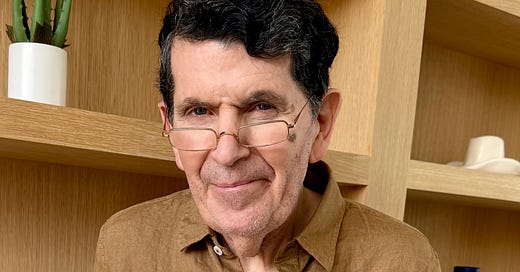How To Master the One Skill That Opens Every Door
And how it's more controversial than politics, pineapple on pizza, and Harry and Meghan combined.
I’m writing this because I posted about small talk on Instagram and it turns out it’s a much more divisive topic than I realised! Some people defended it. Others said it was manipulative, fake, or even oppressive. A few swore they’d rather chew glass than ask someone how their week’s going.
And honestly? Fair enough. Not everyone finds small talk easy, interesting, or even possible. If you’re socially anxious, or just completely depleted, chit-chat might not feel worth doing.
But for the rest? The ones who could get better at it, who wish they knew what to say, who keep ending up on the edge of conversations and wondering how everyone else makes it look so effortless… this is for you.
You say you hate small talk. But what you probably mean is you hate bad small talk. Stiff questions. Predictable answers. The unbearable awkwardness of talking to someone who clearly wants to be anywhere else. Valid. Still, small talk isn’t the problem. The problem is no one ever taught you how to do it well.
But here’s the truth: small talk isn’t shallow. It’s strategic. It’s how people feel each other out before deciding if they want to invest more. It’s the conversational equivalent of dipping a toe in the pool before diving. And when you skip it? You feel cold and abrasive. Hard to place.
Good small talk isn’t about acting interested or putting on a show. It’s about giving someone else an easy way in. You don’t need to be impressive. Just a bit available.
So how do you actually get better at it?
Start with your answers. Most people answer like they’re filling out a form: “Not much,” “Just work,” “Same old.” Technically accurate, but emotionally empty and hard to respond to.
Instead: give them something. “Mostly work, but I’m learning the drums and I think my neighbours must hate me.” Or: “A lot of wedding planning, which is mostly just me pretending to care about the font on the invite.” It’s not oversharing. That’s giving people somewhere to go.
Now flip it. Your questions matter too.
"What do you do?" is a fine question, but it puts people on the spot. Ask what they're into, not just what they do. Try:
“What’s been the best part of your week so far?”
“Are you working on anything fun outside of work?”
“Have you tried any new fabulous restaurants lately? I’m always on the hunt.”
These are questions with energy. You’re not collecting data, you’re inviting play.
Also, stop waiting for a perfect opening. Most of the best social moments start awkwardly. You can say something as simple as:
“I feel like we’re supposed to be talking about the weather. Isn’t that the rule?”
“This snack table is absolutely going to ruin my willpower.”
“I never know what to do with my hands at things like this.”
These aren’t lines. They’re signals. Little green flags that say: I’m friendly! I’m here! You can talk to me!
Small talk isn’t the goal, it’s the door. If you keep standing outside it because you think it’s not worth walking through, you’ll miss the room entirely. And everyone in it!
If this all feels new, uncomfortable, or like something you were never taught, you're not alone. You're just untrained.
That’s exactly why I made Let’s Not Make It Weird: a guide to small talk for people who secretly wish someone would just tell them what to bloody say. I won’t tell you to “smile more.” I won’t make you sound like a robot. It’s smart, dry, wildly practical, and written for people who don’t do well with fluff.
You’ll learn how to ask better questions, steer dying conversations, and stop panicking when someone says, “So, what do you do?”







this information is pure gold!! I'm the one that is always standing in a corner of the room hoping nobody will notice me and try to talk to me, I cannot think in anything to say at all!!